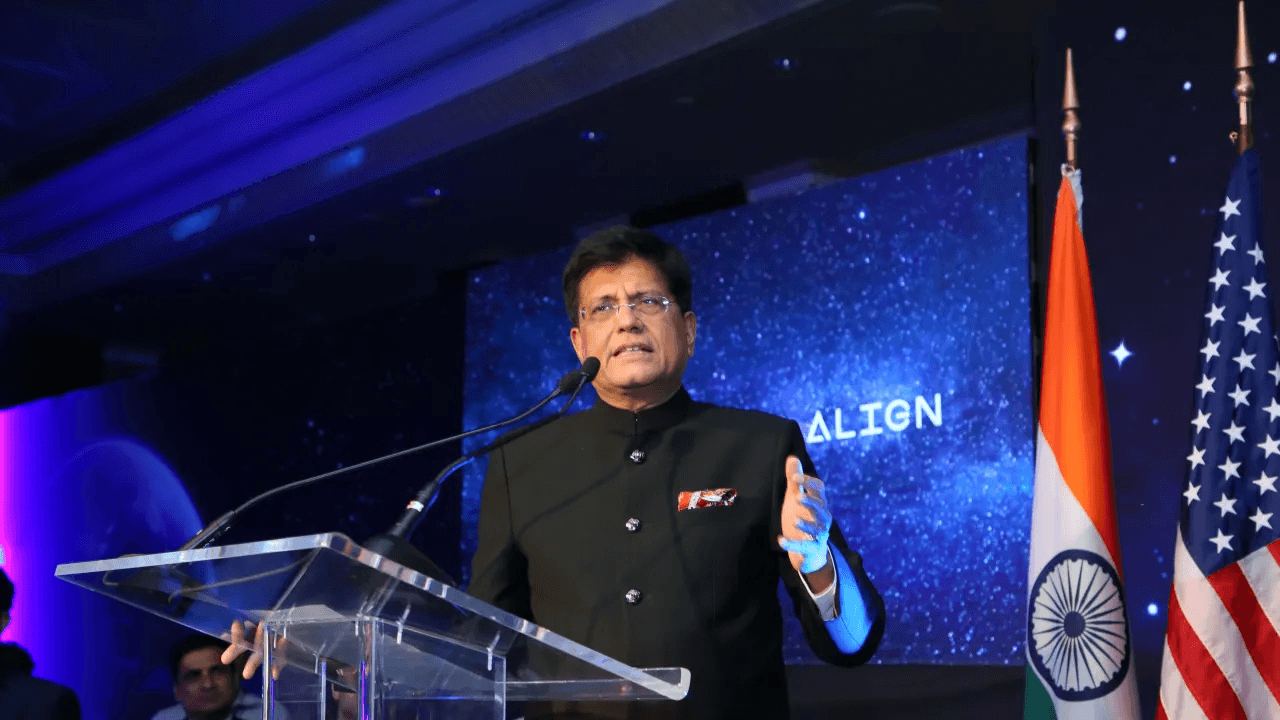President Donald Trump imposed a 26% tariff on India as part of his April 2 “Liberation Day” levies, although he referred to it as a “discounted reciprocal tariff.”
India, one of Washington’s key allies in Asia, is reportedly seeking preferential trade terms with the U.S. in the ongoing tariff negotiations.

India’s Commerce and Industry Minister Piyush Goyal said in an interview with CNBC on Thursday that “India will get a preferential tariff compared to our peers and our competitors, because we were amongst the first to get into negotiations and our discussions, our engagement is truly very, very significant.”
President Donald Trump imposed a 26% tariff on India as part of his April 2 “Liberation Day” levies, although he referred to it as a “discounted reciprocal tariff,” arguing that New Delhi had higher tariffs on imports from the U.S.
Later, as the U.S. President suspended the implementation of the tariffs across the board, barring a 10% base levy.
India did not feature in the list of countries to which Trump sent letters, announcing fresh rates, as the original deadline for the “Liberation Day” tariffs was set to expire.
Since Trump extended the tariff deadline to Aug. 1, several Asian countries have struck bilateral pacts with the U.S., with rates of 15% for Japan, 19% for the Philippines and Indonesia, and 20% for Vietnam.
Since signals indicating a resolution to the tariff standoff have emerged, the U.S. market has been pushing toward successive new highs. On Thursday, the S&P 500 Index, a measure of the broader U.S. market performance, closed at a record high.
The SPDR S&P 500 ETF (SPY), an exchange-traded fund that tracks the performance of the S&P 500 Index, has risen 8.9% year-to-date, while the iShares MSCI India ETF (INDA) is up a more modest 2.70%.
Goyal expressed satisfaction with the progress made in the trade talks. The negotiations were “progressing extremely well” toward achieving the $500 bilateral trade target by 2030 — a goal previously set by Indian Prime Minister Narendra Modi, he said.
He touted the “excellent relations” he shared with his U.S. counterpart, Howard Lutnick. “The United States and India share a very special relationship, and I’m very confident we’ll do a robust and good deal where both countries benefit and where businesses on both sides are happy,” he added.
He also said the quest to clinch a U.S. deal is part of India’s deliberate policy to partner with “developed nations who complement the India story” as opposed to its previous stance of forging partnerships with countries seen as direct competitors.
According to the Indian Commerce Ministry, there are still wrinkles that need to be ironed out, including protecting the domestic farmers from foreign competition. “The Trump administration, and my counterparts, are equally cognizant and sensitive about our concerns,” he added.
Delving into the trade talks, Keshav Murugesh, chairman of the Confederation of Indian Industry UK Business Forum, told CNBC that “India will not be a pushover.” He said both sides are sufficiently motivated, adding that President Trump “and his people want a good deal with India because, let’s face it, India is the future.”
India on Thursday successfully finalized a free trade agreement with the U.K., which provides for the lowering of levies on whisky and car imports from the European nation. In return, India will gain tariff-free access to 99% of imports from day one of the agreement.
For updates and corrections, email newsroom[at]stocktwits[dot]com.<
